At Newcastle Equine Centre, we want our clients to be as educated about horse related issues as possible. On our ‘Horse Care Topic’s’ page, we address different topics of interest to horse owners. The ‘Published Articles’ page has uploads of articles written by out vets that have been published in equine health blogs and magazines.
Feel free to ring the clinic if you have any questions relating to the topics covered on these pages.

Employment Opportunity: Stablehand/Trainee Nurse
We are seeking an enthusiastic Stablehand/Trainee Equine Veterinary Nurse to join our exclusively equine practice in the heart of beautiful Newcastle, NSW. NEC is a combination of first opinion, ambulatory and referral practice which a range of ambulatory services as well as in-hospital facilities to manage surgical, paediatric, and emergency medical cases. Currently, our team consists
WHEN TO CALL A VET – EYE EDITION
Have you noticed that your horse is squinty one of their eyes, weird discharge or has swelling? There is a common saying amongst veterinarians to never delay treatment when it comes to eye injuries/issues because they can deteriorate quickly! Early intervention can often result in saving the horse’s eye! When do you need to get your vet
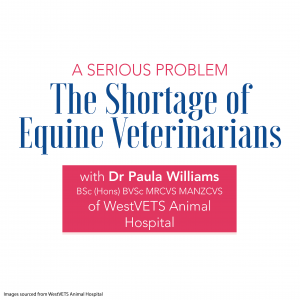
The Shortage of Equine Veterinarians – Dr. Paula Williams of WestVETS Animal Hospital
This article was written by Dr. Paula Williams of WestVETS Animal Hosiptal for WestVETS.PDF downloaded from the WestVets Website.Newcastle Equine Centre accredits 100% of this article to WestVets Animal Hospital.
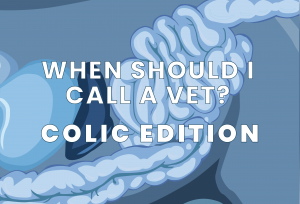
When To Call A Vet – Colic Edition
Are you worried your horse is colicking? When to call a vet: If your horse hasn’t eaten its breakfast or dinner If your horse is laying down more than usual If your horse is constantly looking at its flank, pawing and possibly rolling If your horse hasn’t passed any manure in a 12 hour period
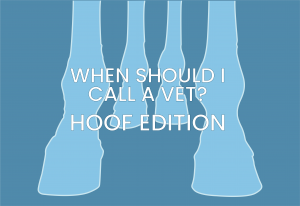
When to call a vet – Hoof Edition
Generally, if there is an issue with your horse’s feet you call your farrier, right? However, do you know what issues or signs would warrant veterinary assistance? Excessive recumbency / laying down for extended periods of time Shifting weight between limbs continuously, or holding a limb out in front, or avoiding placing weight through one
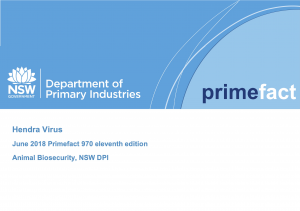
Hendra Virus Fact Sheet
Click here to view the Hendra Virus Fact Sheet provided by the NSW Government Department of Primary Industries
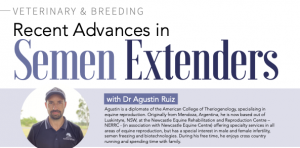
Recent Advances in Semen Extenders
The equine industry, excluding Thoroughbreds, relies heavily on AI to access genetics from different stallions regionally and internationally. Horse selection for breeding is based on pedigree and athletic performance, but not upon reproductive traits or fertility compared to other domestic species. As a result, different breeding strategies have been developed to overcome equine reproductive limitation,
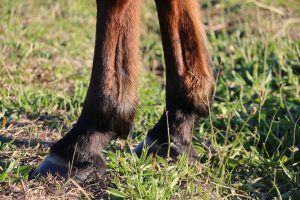
Laminitis
WHAT IS LAMINITIS Laminitis results from inflammation of the sensitive laminae of the hoof. The laminae of the hoof are tiny interlocking finger-like projections that hold tightly together like a zipper. Their function within the foot is to securely attach the coffin (or pedal) bone to the hoof wall. Inflammation can permanently weaken these laminae
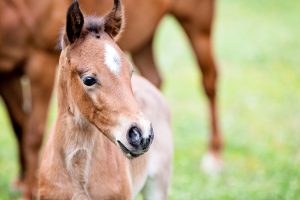
When should I vaccinate my foal?
A vaccination program is essential for your foal to provide protection for severe and potentially fatal diseases. While vaccinations can be administered at any age, vaccinating your foal too early will not be successful in mounting an immune response because the mare’s antibodies will interfere. It is therefore recommended to start a vaccination protocol from 12 weeks
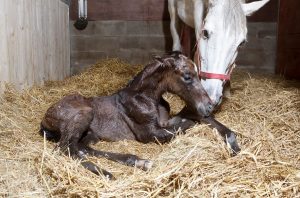
Pre-mature Foal
What is a premature foal? A premature foal is a foal that is immature and born before term, generally considered to be if they are born at less than 330 days gestation. However, length of pregnancy varies between mares, so the definition of a premature foal is not based solely on gestational age but also
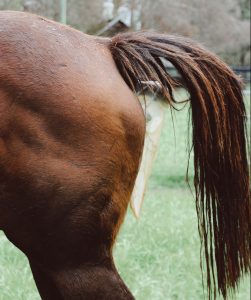
Placentitis
WHAT IS IT? Placentitis is an inflammation within the placenta, it is responsible for the majority of late term abortions in broodmares. The most common type is ascending placentitis where bacteria enters the sterile uterus from the lower reproductive tract (e.g. mares with poor vaginal conformation). Viral and fungal infections can also cause placentitis. Early
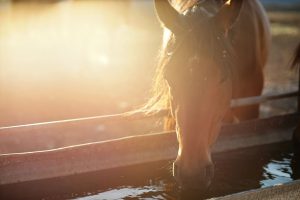
Dehydration Colic
At this time of year in Australia the southern states are freezing through the cold winter months while the northern states are in the middle of the dry season. Whether it is due to freezing cold water and dry forage or because it is hot and dry and the moisture in the grass is low,
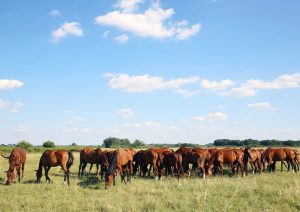
Environmental Management and Parasite Control
Environmental management is an important part of parasite control. When a horse sheds eggs in their faeces, they hatch into larvae on the pasture which are then ingested by other horses as they graze. Therefore, regular and thorough removal of faeces from the pasture is a crucial step to reduce infection. Avoid overstocking and overgrazing
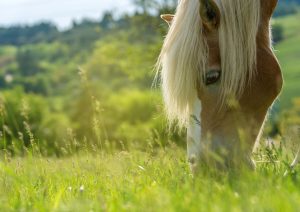
Importance of Faecal Egg Counts!
As we have talked about in our earlier posts, blanket worming and overuse of wormers is both unnecessary and contributes to resistance. Therefore, we now recommend a targeted program tailored to your horse’s needs. The first step of this is to perform a faecal egg count (FEC). An FEC is an examination under the microscope
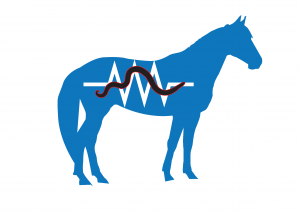
Worm Drug Resistance
What is resistance? Resistance is “the ability of worms in a population to survive treatment with a drug that should be effective against the species and life stage”. This means that the worming product does not kill the worms that it should. Resistance to drugs develops naturally over time in worms but is accelerated and
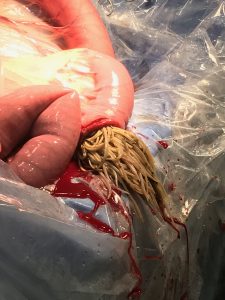
Why are worms a burden for horses?
Horses have evolved over thousands of years to live with parasites in their gut which we commonly call “worms.” So why are we always trying to get rid of them from our horses? In adult horses, small burdens often do not cause any issues. However; as the number of worms gets larger (increased worm burden),

Haemorrhagic / Anovulatory Follicles
Haemorrhagic anovulatory follicle (HAF) means that a follicle (the structure that carries the oocyte or egg within the ovaries) remains in the ovary for a long period of time and gets filled with blood instead of progressing towards ovulation (releasing the oocyte or egg to be fertilized). HAF occurs in about 5-25% of mares during
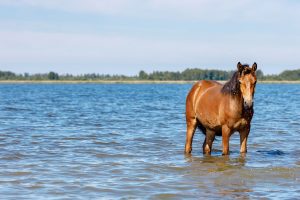
10 Summer Health Problems for Horses
DEHYDRATION A consequence of fluid loss, dehydration can affect your horse year-round, but remains more prevalent during Summer when fluid loss from sweating exceeds a horse’s intake through drinking. Dehydration is much more than your horse just being thirsty. Dehydration can result in other health problems, such as impaction colic due to the faeces becoming
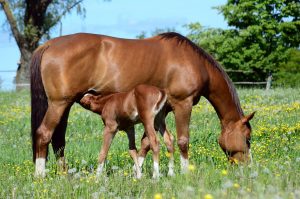
Artificial Insemination in the Mare
ARTIFICIAL INSEMINATION IN THE MARE AT NERRC Semen collection and insemination techniques have been refined to make Artificial Insemination (AI) an excellent reproductive choice providing an advantageous option for many breeders. Some of the advantages of AI are to eliminate transporting a horse for breeding, reduce the risk of sexually transmitted diseases, eliminate

Treating lameness with a horses own blood!
There are two treatments that we commonly use at NEC to treat lameness and joint injury in horses that take advantage of healing agents in the horse’s own blood. IRAP or Interleukin-1 Receptor Agonist Protein, is used for arthritis and joint injuries and PRP or Platelet Rich Plasma, is used for tendon, ligament and some
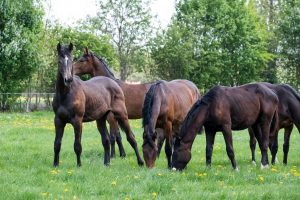
Semen Freezing and Storage
Preserving your stallion genetics is key and we offer this procedure in our equine reproduction laboratory at Luskintyre. WHAT ARE THE ADVANTAGES? Increased quality control: The use of frozen semen allows pre-screening for infectious diseases and a thorough evaluation of the semen quality after collection and after thawing. This allows owners to be informed about
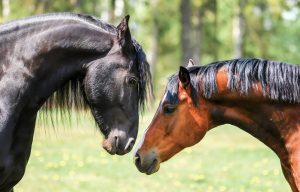
Semen Collection and Evaluation
Available for all breeds, this procedure consists in a brief physical examination and external evaluation of the reproductive tract (testicles, scrotum and penis) followed by semen collection in an artificial vagina and a purpose made collection dummy. The semen sample obtained undergoes a thorough evaluation in our fully equipped lab which includes motility, morphology and
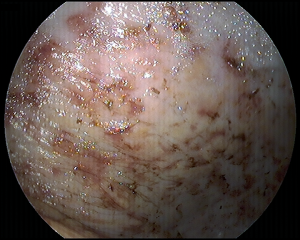
Gastric Ulcers in the Horse
What are gastric ulcers? Gastric ulcers are breakdowns of the stomach lining and are common in horses and foals. Equine Gastric Ulcer Syndrome (EGUS) is a multifactorial condition and is associated with a variety of clinical signs. The horse’s stomach is divided into two distinct regions, the upper squamous region and the lower glandular region.
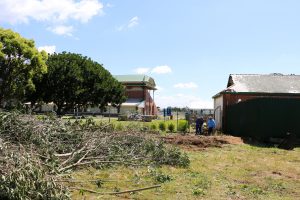
New Entrance to NEC Broadmeadow Clinic
THIS ENTRANCE WILL BE IN USE FROM MONDAY, 12TH OF OCTOBER IF YOU HAVE ANY QUESTIONS PLEASE RING THE CLINIC ON (02) 49296135. × Dismiss alert Due to developments at the Racecourse, we have had to change our entrance to best suit the needs of our clients, patients, and staff. Instead of entering the eastern

HENDRA CASE CONFIRMED IN NORTH-EAST NSW
There has been a confirmed case of HENDRA at Murwillumbah in NE NSW. A 17-year-old unvaccinated gelding was noted to be unsteady on his feet and cyanotic (poor breathing leading to low oxygen and blue gums) but NO FEVER. It is important to remember that the signs of Hendra can be variable and range from

COVID-19 and Newcastle Equine Centre
To our valued clients, with the COVD-19 cases decreasing in NSW, we have altered our strict procedure when attending you and your horses. To keep you and our staff safe, we will continue to practice social distancing the best we can and minimise direct contact when we can. This policy can and will change if
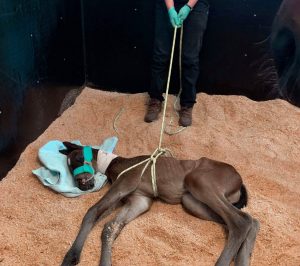
Dummy Foal Nursing After Madigan Squeeze Procedure
By Dr. Lisanne Gallant Neonatal maladjustment syndrome (aka dummy foal syndrome) is a common disorder of foals that have mystified equine veterinarians for decades. Foals affected by this disorder seem detached from the world, often wondering aimlessly with no affinity for their mum. The most problematic symptom of this disorder is these foals’ lack of

Our Sponsor of and Attendance to the Hunter Valley Polo Challenge
Newcastle Equine Centre is a proud sponsor of the Hunter Valley Polo Challenge hosted by Wirragulla Polo Club in Dungog. Over the weekend, Dr Sam Morley attended the amazing event to provide veterinary support and enjoy some fantastic fast play polo. The Grade A final between Wirrgulla and Scone was exciting to watch as the
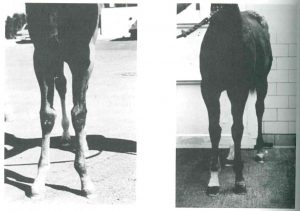
Equine Reproduction: Foal Conformation
BY Dr. Paddy Todhunter Specialist Equine Surgeon. What is normal conformation and what are we looking at in assessing conformation? Conformation is essentially how the legs of a horse are put together and the alignment of the legs. It plays an important role in a horse’s soundness and athletic ability. To assess a foals conformation,
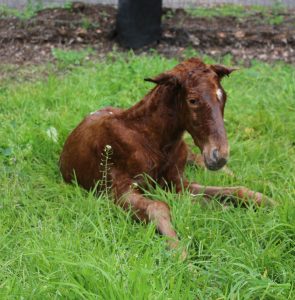
Equine Reproduction: Foal Neonatal Care
BY Dr. Lisanne Gallent Medicine Specialist. It’s that time of year! As exciting as foaling season can be, what do you do when your new arrival gets sick or isn’t thriving as you’d expect? Here at NEC we offer everything in neonatal foal care ranging from healthy foal checks to intensive and critical care under
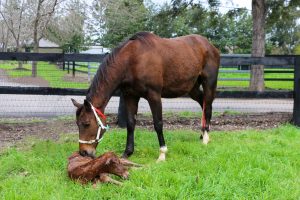
Equine Reproduction: Parturition
As we get close to foaling time breeders should refresh their knowledge of a normal foaling and when to call the vet. The majority of foalings will occur without complication, however approximately 1 in 20 foals will experience some difficulty and it is imperative for both the mare and foal’s survival that assistance is provided
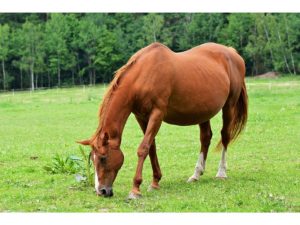
Equine Reproduction: Prenatal Care
By Dr. Morgan Webber BVSC (Hons) MANZCVS (Equine Medicine) The sometimes hard task of getting your mare in foal is now accomplished – now what!? It will be very important to monitor your mare closely as she progresses throughout different stages of pregnancy as her needs will change as her pregnancy progresses. It will
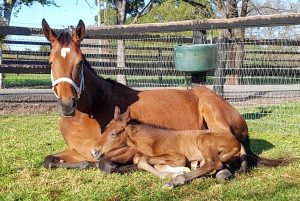
Equine Reproduction: Getting Your Mare In Foal
By. Dr Cecilia Cortina Di Favria,DVM What do I do if I want to breed my mare? Making a good plan is essential for a positive outcome. We can help you with this. First, decide whether your mare needs to go away to the stallion or breeding farm or whether you can keep her at
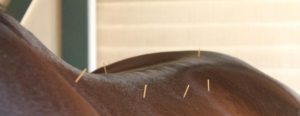
Equine Acupuncture
One of our awesome vets, Dr. Cecilia Cortina di Favria is a certified Equine Acupuncturist (IVAS). To give you some additional treatment options for your horse, we will now be offering acupuncture services. So what is Equine acupuncture? Acupuncture involves the stimulation of precise occupants on the body and is part of one of the
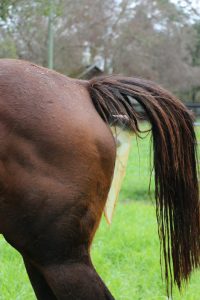
Foaling Advice
Normal foaling: Stage I Labor: 1-6 hrs (mare heating up) Stage II Labor: 15-30 minutes (from time water breaks to foal on ground) Stage III Labor: Placenta must be passed within 3 hrs of foaling. Ensure placenta is intact. After foaling: Foal standing within 1 hr Foal suckling within 2-3 hr (Call vet if foal has
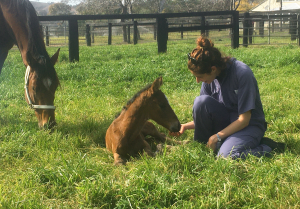
Newborn Foal Care
It is important to know what is normal in the newborn foal so any problems can be easily identified and promptly treated. After birth, a foal should: Be standing within the first hour and becoming more active and alert over time Have a strong suckle reflex within 30 minutes and once standing should be seeking
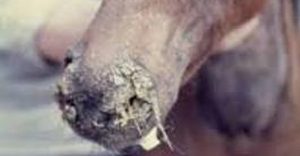
Rattles In Foals
Rattles is a serious lung disease of foals that causes pneumonia and abscess formation in the lungs causing affected foals to develop respiratory signs. Rattles is caused by the bacteria Rhododcoccus equi which can be found within the soil in widespread areas. Foals ingest or inhale the bacteria from the soil, so disease seen commonly
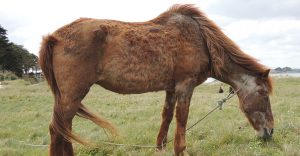
Cushings Disease
By NEC Veterinary Intern, Dr. Antonella Pannunzio. Equine Cushing’s Disease, also known as Pituitary Pars Intermedia Dysfunction (PPID) is the most common endocrine disorder diagnosed in horses. Cushing’s disease is a progressive disorder caused by a benign tumor affecting a part of the brain known as the pituitary gland. Normally, the pituitary gland releases hormones
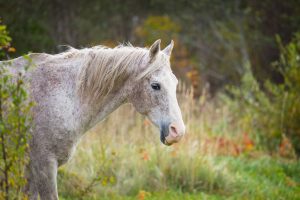
Feeding Older Horses
As horses age, we must increase our awareness of their general well being. Monitoring body condition score is one of the most important things an owner of a geriatric horse can do. Ideally the horse should be in body condition score 3/5, so that you cannot see the ribs, but they are easily felt. Body
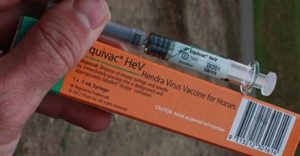
Hendra Virus
The Equivac HeV vaccine is the single most important step in protecting your horse and your family against the deadly Hendra Virus. Newcastle Equine Centre strongly recommends that all horses are vaccinated. The vaccine must be given by a veterinarian, involves 1 initial injection, followed by another injection 3-6 weeks after, then another 6 months
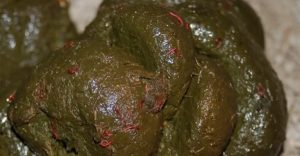
Guide To Worming Horses
Worms that affect horses are everywhere and all horses are continually being exposed and infected with worms. For this reason, prevention of worm problems in horses is one of the most important aspects of horse husbandry and veterinary medicine. Common worms that affect horses: small strongyles (cyathostomes), large strongyles, roundworms, pinworms, tapeworms and bots. How





